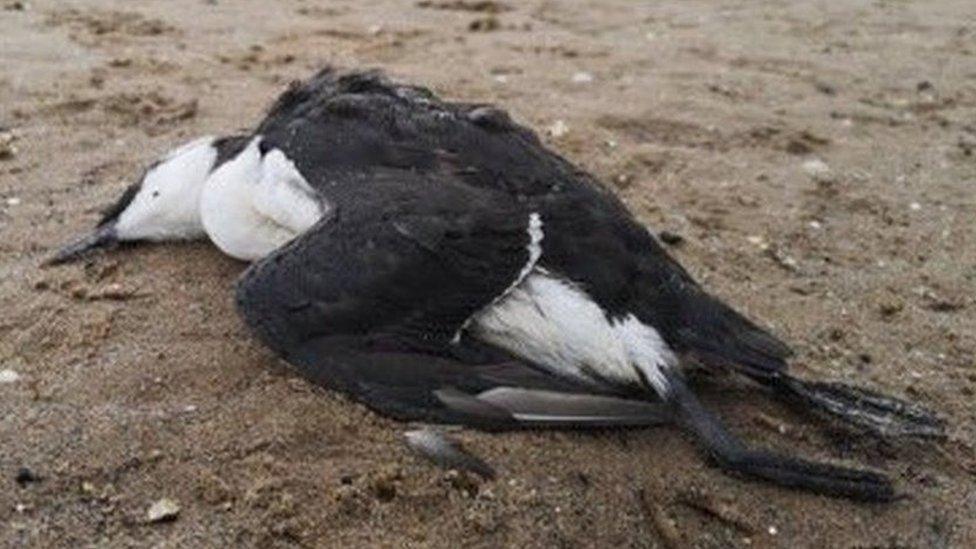Dead seabirds found on Northumberland to Teesside coast
- Published
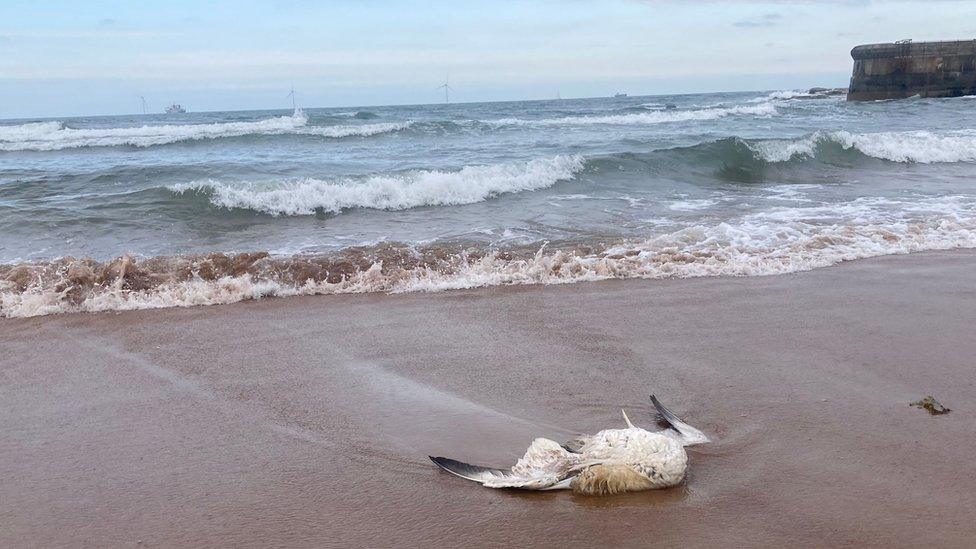
Dr Andy Suggitt said he was "surprised" to find so many dead birds on a three-mile (5km) stretch of beach
Dead seabirds have been discovered washed up on beaches from Northumberland to Teesside.
Hundreds of bird carcasses have been seen across Scotland due to an outbreak of avian flu in recent weeks.
The RSPB believes the outbreak north of the border could be linked to deaths in the North East.
A total of 20 dead seabirds were discovered on the beach at Blyth, with more washed up on the Teesside shoreline, including a puffin.
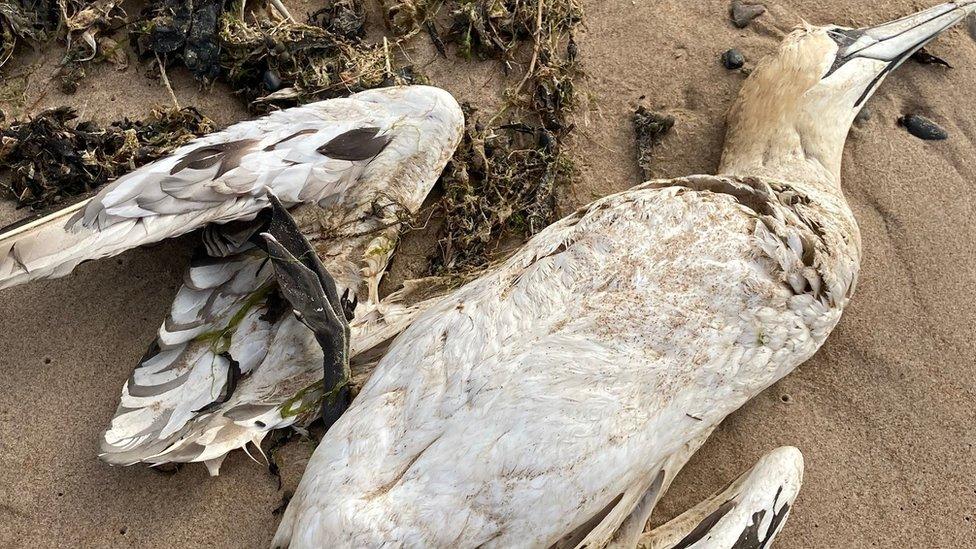
Dr Andy Suggitt found 13 dead gannets between Blyth and Seaton Sluice
Dr Andy Suggitt, an ecologist at Northumbria University, discovered the birds while on a three-mile run (5km) between Blyth and Seaton Sluice on Tuesday evening.
He counted 13 gannets (eight on the strandline, five between tidelines), three herring gulls, one guillemot and three unidentified species.
Dr Suggitt said: "I was really surprised to find so many seabirds along quite a short stretch of beach. We're a fair distance from the nearest breeding colonies for gannets or guillemots so you wonder how many are turning up further along the coast.
"If we determine that the deaths are due to avian flu, then we'll need to step up our monitoring of wild populations to work out the full extent of the problem- that will mean giving Defra, the Animal and Plant Health Agency (APHA) and the other agencies the resources they need to properly tackle this."
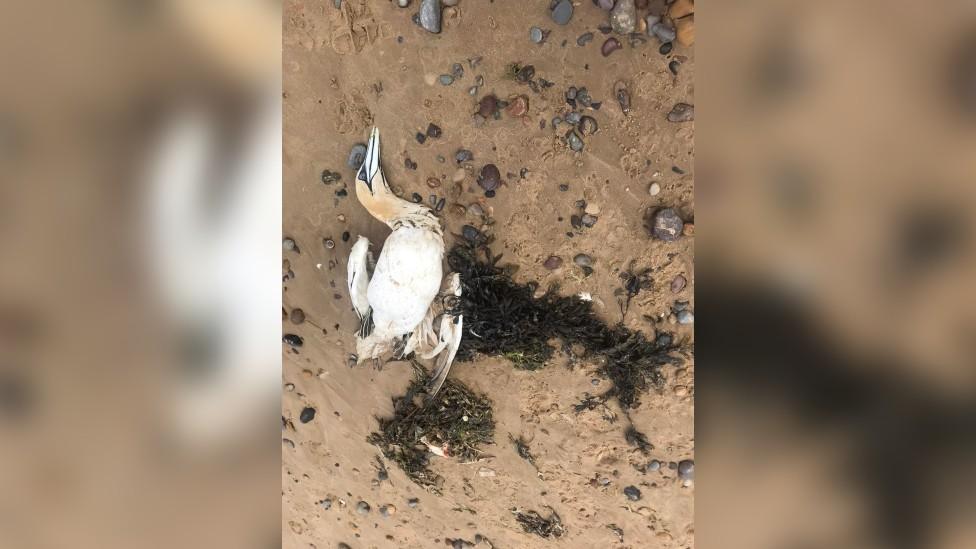
Linda Bates said she had seen four dead seabirds on the beach at Saltburn-by-the-Sea
On the Teesside coastline, further dead birds have been found.
Linda Bates found four including a dead gannet on Tuesday at Saltburn-by-the Sea, she also said there were several others she saw when walking earlier today.
A dead puffin was found by Dawn Haida while walking on the beach at Redcar, also on Tuesday.
Last September, an "unprecedented" number of seabirds, were found dead or starving along the Northumberland and Scottish coasts, the majority of the cases were guillemots.
Then the UK Centre for Ecology and Hydrology ruled out bird flu and concluded the cause was poisoning from algal blooms.
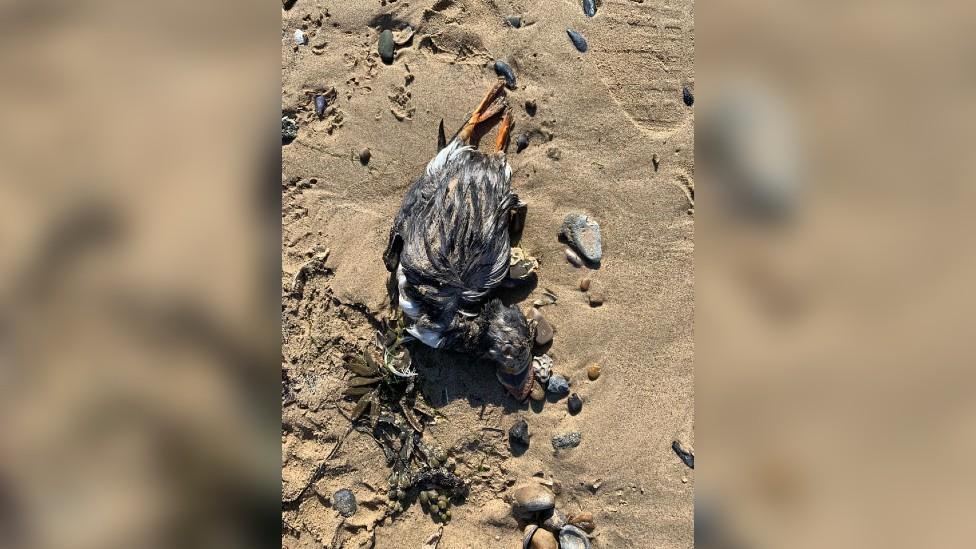
Dawn Haida discovered a dead puffin on the beach at Redcar
The RSPB is calling on UK governments to develop a response plan, involving coordinated surveillance, testing, biosecurity and carcass disposal.
The charity's director of conservation Katie-Jo Luxton said: "Britain's seabird populations are of global significance. The UK holds 56% of the world's gannet population, an amber listed species.
"Our seabird populations have halved since the 1980s. Now, a highly mutable and deadly new form of avian influenza, which originated in poultry, is killing our wild seabirds in large numbers."
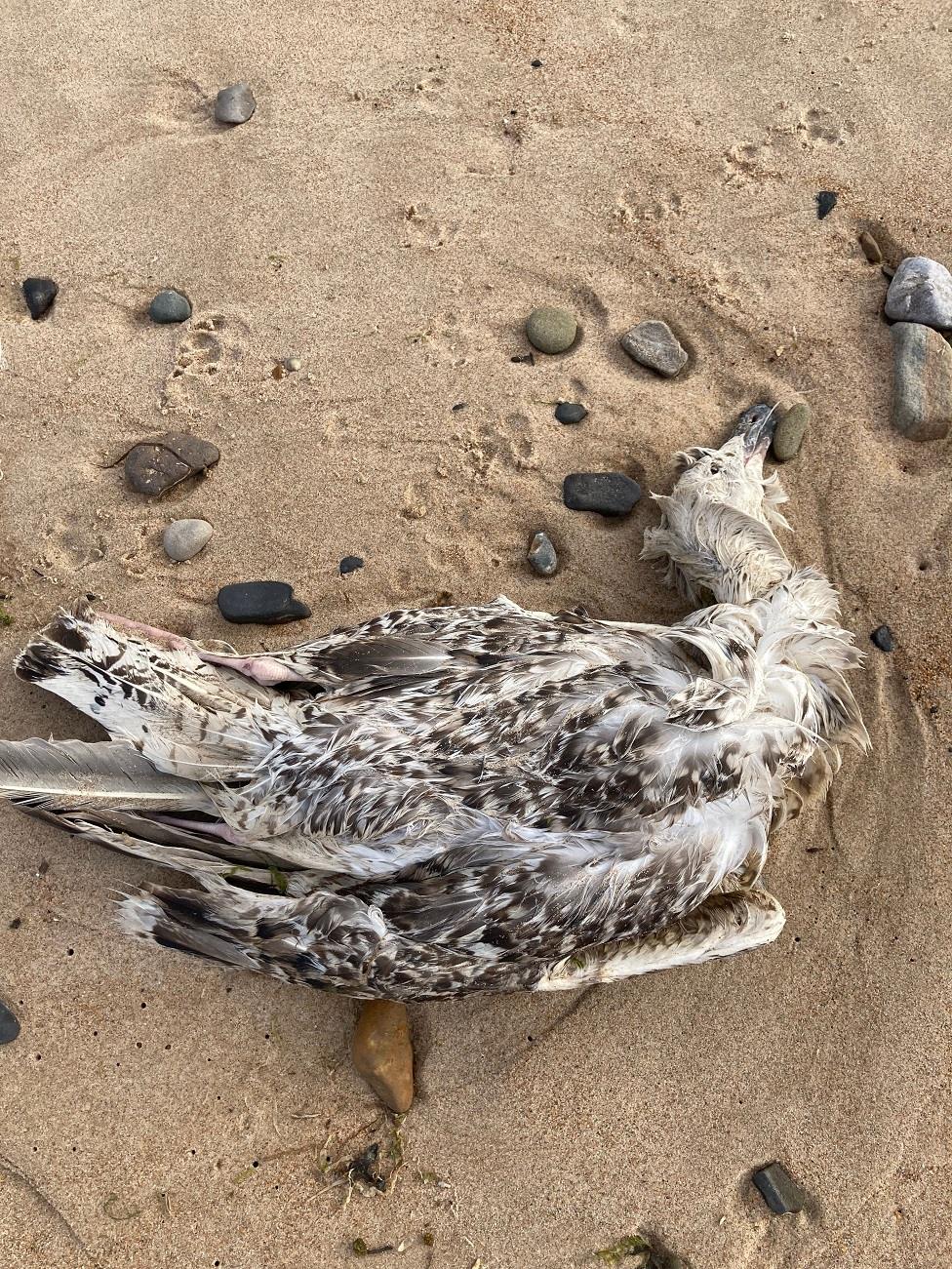
A dead herring gull found on the beach in Northumberland
The Environment Agency said it had received no reports to its incident hotline and asked that anyone who finds dead seabirds report them by calling 0800 80 70 60.
The Department for Environment, Food and Rural Affairs said it was aware of a number of wild bird deaths in several locations in England and they were currently under investigation as part of APHA's on-going wild bird surveillance programme.
It added APHA will collect a small number as part of our avian influenza wild bird surveillance programme, and tests would be carried out to "understand how the disease is distributed geographically".

Follow BBC North East & Cumbria on Twitter, external, Facebook, external and Instagram, external. Send your story ideas to northeastandcumbria@bbc.co.uk, external.
Related topics
- Published8 June 2022
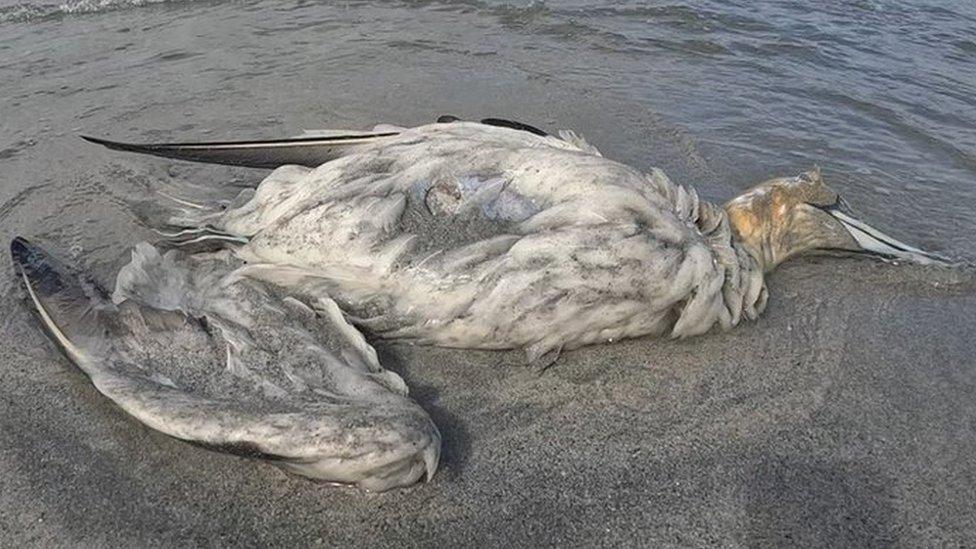
- Published7 June 2022
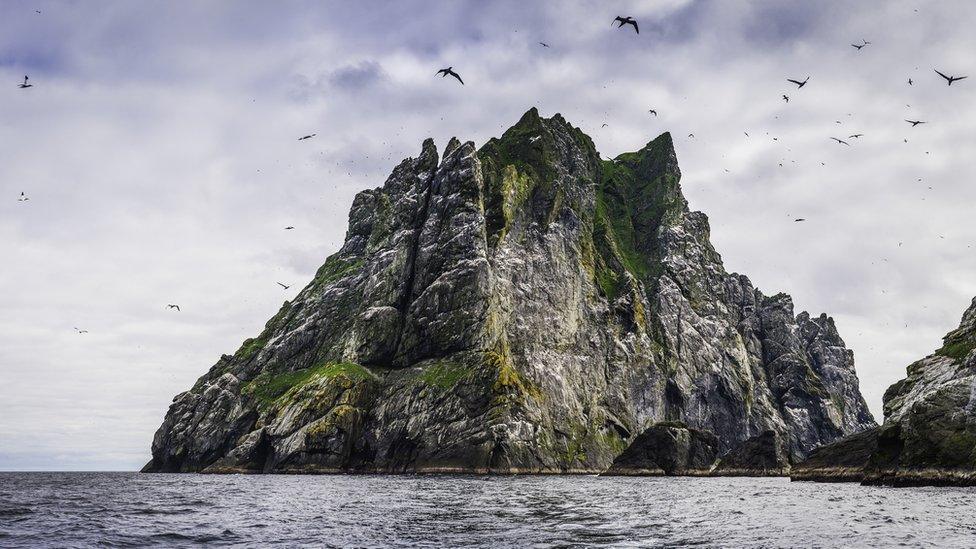
- Published6 June 2022
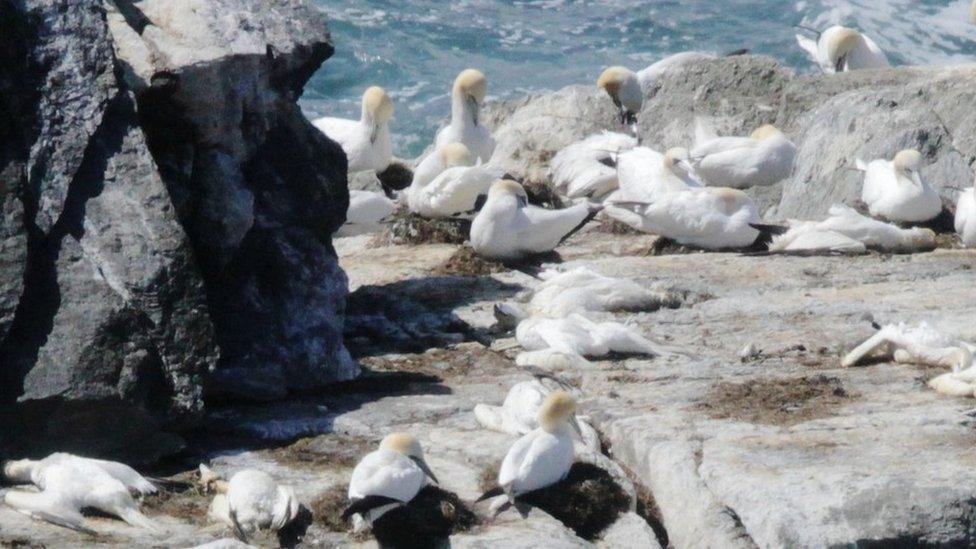
- Published13 May 2022
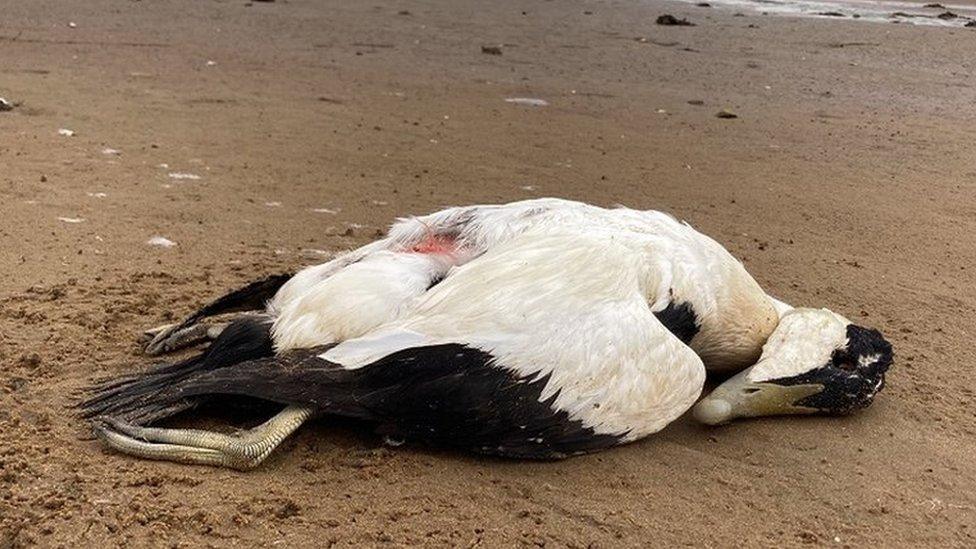
- Published17 September 2021
